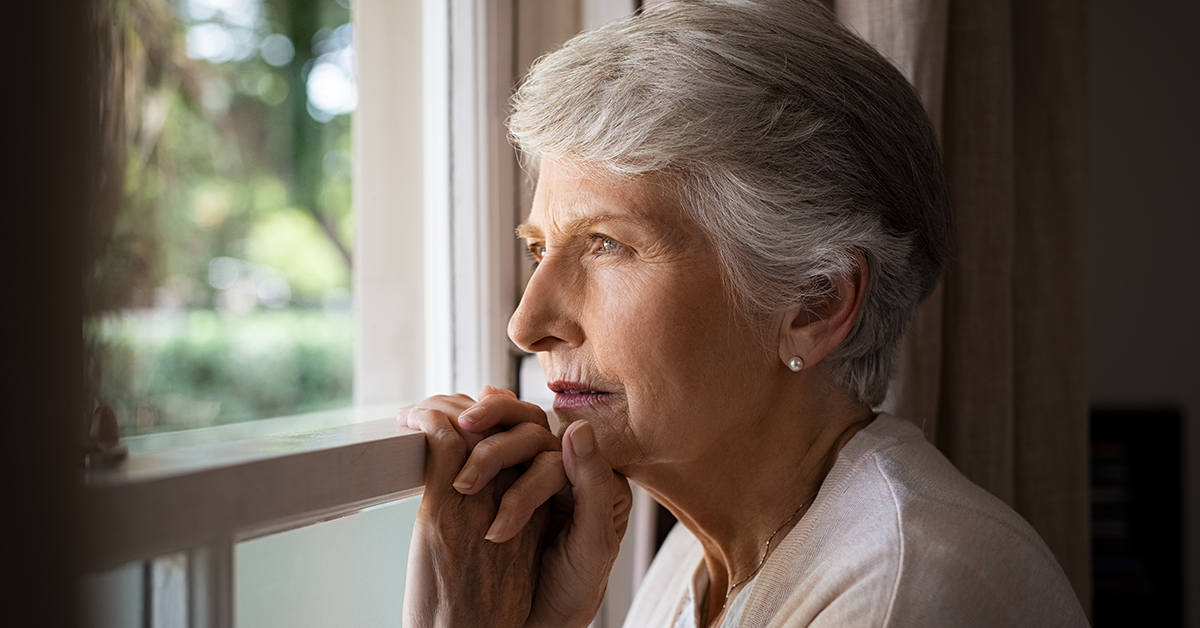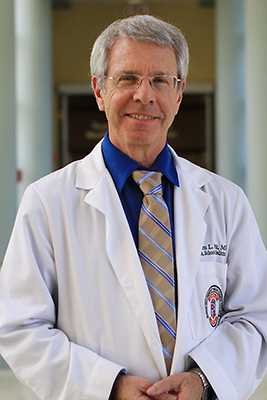How and Why COVID-19 Affects Senior Citizens
An Infectious Disease and Geriatric Specialist Shares Concern About Nursing Homes

Elderly and those with underlying health conditions are being hit hardest by COVID-19.
Since the beginning of the COVID-19 pandemic, it has been clear that the elderly and those with underlying health conditions are being hit hardest by the virus. The Centers for Disease Control and Prevention state that “older adults, 65 years and older, are at higher risk for severe illness.” The CDC also reports that deaths from COVID-19 are significantly higher in the elderly population.
We have also seen numerous stories of the virus wreaking havoc in nursing homes. In fact, the Washington state pandemic started around a nursing home.
Steven L. Berk, M.D., Executive Vice President and Dean of the Texas Tech University Health Sciences Center (TTUHSC) School of Medicine, explained the reasons COVID-19 is so deadly in seniors, the lessons the medical community can learn moving forward and what we can all do to support our elderly friends and family members.
Berk is certified in infectious disease and geriatrics. He has authored papers about reform of nursing homes and long-term care facilities, and has contributed on the topic recently with the Washington Post, local media and others.
Why Seniors Are At Risk of Contracting COVID-19
“Elderly people are predisposed to lots of different infections and definitely predisposed to coronavirus,” Berk explained.
One reason is underlying diseases. The older you get, the more likely you are to develop chronic lung disease, kidney disease or diabetes, among others, he said. These are all conditions that predispose the body to catching a virus and being weaker at fighting it.
“The immune system doesn’t work as well as you get older,” Berk said. Immune senescence is the aging of the immune system and predisposes older adults to a higher risk of latent virus reactivation.
“That’s why we see reactivation of chickenpox and shingles as you get older,” Berk explained.
“With coronavirus, there’s a much more serious issue, which has affected us dramatically in Lubbock,” Berk said. “Half of our patients with COVID are from nursing homes.”
Nursing Homes: A Virus Breeding Ground
Berk explained that nursing homes are susceptible to virus outbreaks because residents are vulnerable and crowded together. Visitors and employees come and go. Often, caregivers work at numerous facilities and can carry infection from one to another. And, infection control standards in nursing homes are not required to be the same as in a hospital.

Steven L. Berk, M.D.
We are seeing tragic results at nursing homes during this pandemic, Berk said.
“Almost all those who have died [in Lubbock] have come from nursing homes,” he stated.
Berk recommends nursing homes not allow visitors during this time. Nursing homes should limit their building access to one entrance that properly screens anyone entering for symptoms. He wants to see as much testing as possible in nursing homes, so COVID-19 positive residents can be separated from those who do not have the virus.
Berk believes that the COVID-19 pandemic might propel permanent change in elder-care facilities. It’s a cause he has been championing for many years.
“We’ve always seen outbreaks in nursing homes,” he explained. “TB, influenza, salmonella. Things are going to have to change. Nursing homes are going to have to be designed differently.”
Berk also advocates for an infection control nurse on staff and closely monitoring who comes in and out of any elder-care facility.
How Can We Help Seniors During COVID-19
Many grocery stores around the country are offering special shopping hours for seniors during the pandemic.
Despite this option, Berk recommends that family or friends shop for seniors as much as possible or help them set up delivery services or curbside-pickup options. Burk urges seniors to wear a cloth mask and maintain social distancing if they must shop in public.
As for loved ones in nursing homes, as difficult as it is, Berk explained that the best way to help is to stay away. Limit social contact at this time to phone and video calls.
But reach out often. Making contact is vital in this time of separation, particularly for our seniors citizens.
“There’s an overwhelming sense of loneliness, so social media and communication technology can be a real godsend,” Berk said.
Together, we can take steps to protect our elderly during COVID-19. And thanks to technology, we can help them feel loved and supported.
Related Stories
Celebrating Veterans: TTUHSC’s General Martin Clay’s Legacy of Service and Leadership
From his initial enlistment in the Army National Guard 36 years ago to his leadership in military and civilian health care management roles, Major General Martin Clay’s career has been shaped by adaptability, mission focus and service to others.
Texas Tech University Health Sciences Center School of Nursing Named Best Accelerated Bachelor of Science in Nursing Program in Texas
The TTUHSC School of Nursing Accelerated Bachelor of Science in Nursing (BSN) program has been ranked the No. 1 accelerated nursing program in Texas by RegisteredNursing.org.
TTUHSC Names New Regional Dean for the School of Nursing
Louise Rice, DNP, RN, has been named regional dean of the TTUHSC School of Nursing on the Amarillo campus.
Recent Stories
The John Wayne Cancer Foundation Surgical Oncology Fellowship Program at Texas Tech University Health Sciences Center Announced
TTUHSC is collaborating with the John Wayne Cancer Foundation and has established the Big Cure Endowment, which supports the university’s efforts to reduce cancer incidence and increase survivability of people in rural and underserved areas.
TTUHSC Receives $1 Million Gift from Amarillo National Bank to Expand and Enhance Pediatric Care in the Panhandle
TTUHSC School of Medicine leaders accepted a $1 million philanthropic gift from Amarillo National Bank on Tuesday (Feb. 10), marking a transformational investment in pediatric care for the Texas Panhandle.
Texas Tech University Health Sciences Center Permian Basin Announces Pediatric Residency Program Gift
TTUHSC Permian Basin, along with the Permian Strategic Partnership and the Scharbauer Foundation, Feb. 5 announced a gift that will fund a new pediatric residency.
